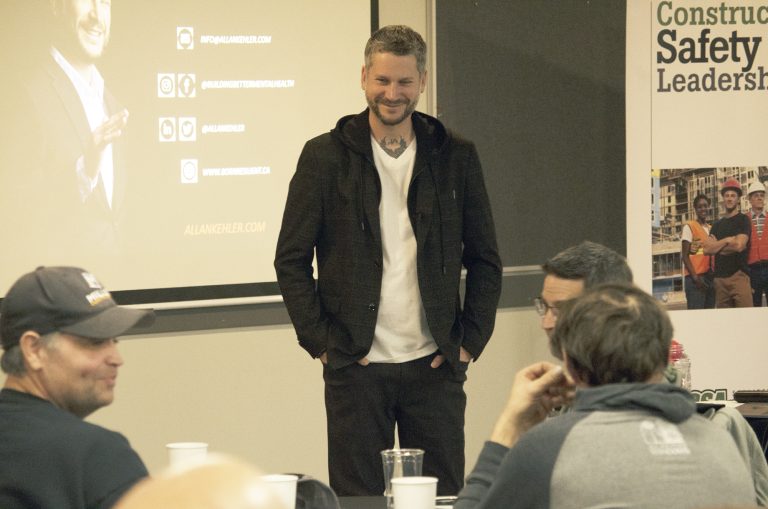
On Wednesday, Allan Kehler took part is something he never expected to see a decade ago.
Kehler, an author and mental health advocate, was in Prince Albert to speak to members of the local construction industry. The discussion focused on how leaders can encourage workers to seek help instead of hiding mental health problems.
For Kehler, it marks an unexpected, by welcome, change from how things used to be.
“Ten years ago in the construction industry, I doubt we would have got as many people here,” Kehler said following Wednesday afternoon’s discussion. “Just in talking to so many people, I’d flat out say, ‘what brought you here?’ (They say), ‘oh, lived experience.’”
Kehler welcomes the openness construction workers have shown towards solving mental health challenges in the industry. However, he’s worried about the challenges that made this discussion necessary in the first place.
Statistics for Saskatchewan are difficult to find, but experts in both the construction and mental health fields believe the challenges are similar to those found in other provinces and the United States.
Surveys from both the Centre for Disease Control and Prevention in the U.S. (2015) as well as British Columbia Building and Trades (2020) show 20 per cent of construction workers reported having suicidal thoughts in the last six months. In the U.S., only miners show higher rates of suicide.
Roughly 41 per cent of construction workers do not seek help when they have substantial mental distress. Stress, remote job site locations, and long hours with little rest are among the reasons mental health experts say construction workers are struggling.
Kehler said construction workers need to be willing to acknowledge the challenges they face, but traditionally have resisted doing so. That’s why he’s pleasantly surprised to see industry veterans moving the conversation forward in Prince Albert.
“The walls are up for so many of the men because of that whole mentality that still exists and the barriers,” Kehler explained. “Slowly the walls are coming down through events such as this. More and more people within the construction industry are saying, ‘I’m done with the hiding. (I’m going to) be vulnerable’ and when they do so, they’re being met with compassion. That is changing the whole industry, slowly.”
The Saskatchewan Construction Safety Association (SCSA) partnered together with the Saskatchewan network of commercial construction associations to host Wednesday’s event.
SCSA vice-president Edward Pyle said it’s a far cry from the type of safety meetings they normally hold, but poor mental health has become an issues that’s too big to ignore.
“This is a new topic for us in a lot of ways,” he said. “Historically, we’ve talked a lot more about PPE (personal protective equipment) and hardhats and how to use a ladder safely. The mental health element of safety is a bit new, so we didn’t know what we would see for sure (at Wednesday’s meeting), but this is a good turnout and we’re happy to see it.”
Pyle said the construction industry has had conversations about mental health for the past four to five years, but its only in the last six months that its taken on a new sense of urgency. Labour force shortages have hammered contractors, making it even more important the few workers who remain stay healthy.
“There are so many investment dollars available for construction and it’s so difficult to find people who are both qualified from a knowledge, skills, and ability perspective, and have the mental readiness to do the job,” Pyle explained. “It’s gotten harder and harder, and that pressure has become more acute the last little while.”
Pyle added that Prince Albert has become a “hotspot” for construction, and that’s one of the reasons they decided to host an event here. If they’re successful in reducing the mental health challenges, industry veterans say it will have wide-ranging effects that go beyond the job site.
“Each worker has a family that they go home to,” Saskatoon Construction Association CEO Shannon Friesen said. “If they’re not healthy and strong, it impacts their family, it impacts their network and friends and support people, and before long, the construction industry won’t have the appropriate labour force. It impacts the economy. It has a snowball effect on so many things.”
